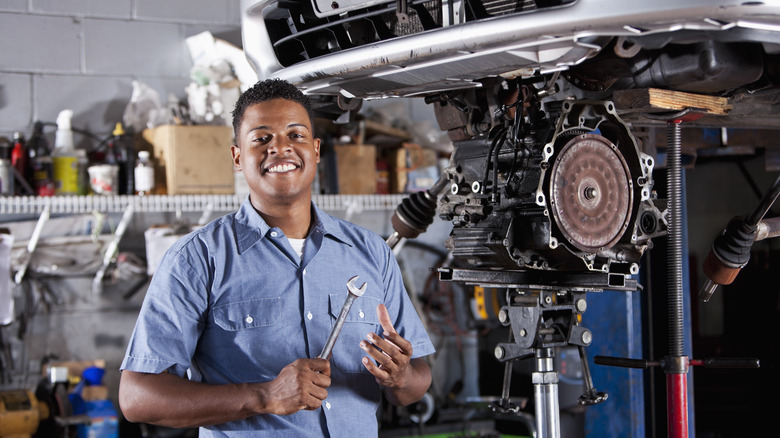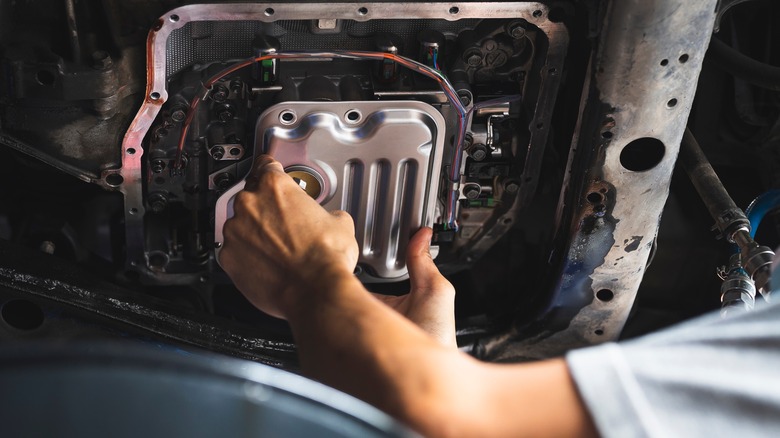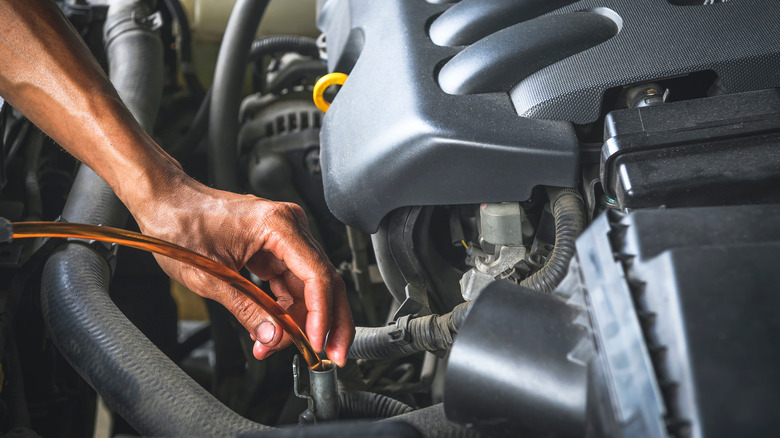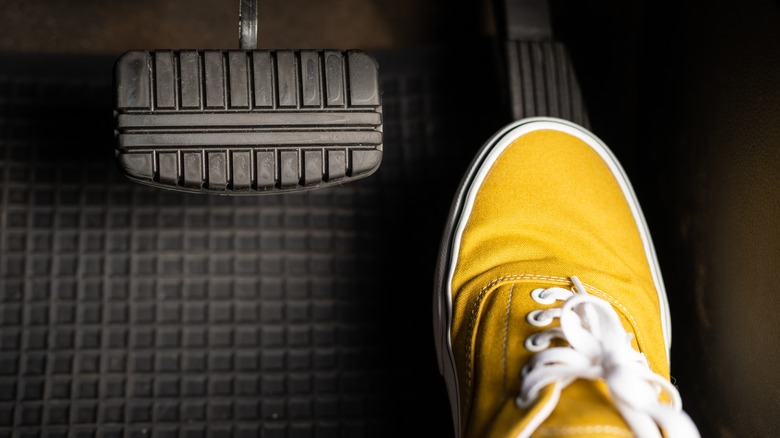5 Tips For Extending The Life Of Your Vehicle's Transmission
Several components of an engine must work in concert to enable a vehicle to travel the roads. Without a healthy alternator, for example, your car's electrical system won't work properly, and the engine may not start due to the battery dying. Complex moving parts within and around the cylinder block require precise calibration, proper seals, and lubrication to successfully facilitate internal combustion. And without major parts like a working transmission, you won't be going far at all.
Transmissions can continue to operate as high as 186,000 miles or more, given that regular maintenance is taken seriously. On average, a transmission replacement costs between $2,500 and $5,000, with luxury models surpassing $6,000. So, to preserve every dollar in your bank account, there are some measures you can take to help preserve this costly engine component for as long as possible. If you want to prolong your transmission, there are two approaches: maintenance and driving habits.
Regularly replace the fluid and filter
Various liquids throughout an engine help reduce friction between moving parts, reduce heat buildup, and preserve crucial components from wearing too quickly. Transmission fluid is vital in ensuring healthy vehicle performance, but it can become less effective due to oxidation over the course of as few as 37,000 miles. Oxidation transforms the fluid from its normal red color to something much darker, indicating it can no longer properly do its job.
The transmission filter is also something to check routinely, as it aims to catch unwanted particles in the fluid before they reach critical areas. As your vehicle's miles creep up, the fluid meant to help preserve the transmission can become filled with metal shavings, dirt, and other unwanted debris. Fortunately, a filter is in place to help stop these particles from getting inside the transmission, but it can become clogged and need to be replaced.
Use the recommended transmission fluid
If you thought all transmission fluids were the same, think again. There are different types of transmissions, and each one may require a specific type of fluid recommended by the auto manufacturer. For example, several different automatic transmission fluids are designed to work in specific scenarios based on the car's make and model. Some products are made to work in a continuously variable transmission, other vehicles may require ultra-low viscosity fluid, and some aging cars might need multi-vehicle synthetic fluid. The recommended fluid can also positively impact performance, allowing your transmission to function at its peak.
Unfortunately, choosing a fluid other than the manufacturer's recommendation for your specific vehicle can cause problems. The wrong transmission fluid could fail to properly lubricate, increase heat and grinding between parts, and ultimately lead to costly repairs. See how an automatic transmission works for even more context to help understand the importance of regular maintenance.
Gradual acceleration is best
Depending on your vehicle, especially if it's sporty, it's tempting to accelerate aggressively when starting from a stop or entering the highway. Unfortunately, this type of quick acceleration can take a toll on your transmission. The faster you get up to speed, the quicker and harder your transmission must work to get you there. A labored engine component creates more heat and can become damaged if consistently pushed beyond normal driving conditions.
The gears inside a transmission have grooves or teeth that engage together when shifting. When shifting quickly, the gears become susceptible to increased wear, and you may even experience rough transitions from gear to gear. Your driving habits, including speeding beyond highway limits, directly impact how long your transmission will last. Try to incorporate more mellow habits behind the wheel to help alleviate the strain on your engine for greater longevity. Different automatic transmission types achieve the goal of transitioning between gears without a clutch or hand shifter but accomplish it in unique ways.
Keep downshifting to a minimum
Both manual and automatic transmissions allow drivers to shift into a lower gear, usually in an effort to help decelerate the vehicle. If you've spent time on steep mountain roads, you've likely smelled the awful stench of burned brakes due to overuse. It's often a good idea to use your brakes sparingly on lengthy downhill roads, so many drivers will opt to downshift to slow the rate of speed instead. While this is perfectly viable in specific circumstances, you want to use this technique sparingly because you're stressing the transmission. However, there are times you should use the low gear in an automatic car.
When using the gears to slow down, you'll hear the engine revving at high RPMs before the vehicle begins to ease its pace. Similarly to aggressive acceleration, you're putting immense pressure on your gears and causing operating temperatures to rise. Remember that replacing worn brake pads is significantly less expensive and labor-intensive than repairing, rebuilding, or replacing a transmission.
Towing capacity isn't a suggestion
Many people have discovered the functionality and convenience of SUVs and pickup trucks. These vehicles can typically haul more cargo and pull more weight. But before hooking up a new camper or boat trailer, verify your vehicle's official towing capacity. For example, a large travel trailer might look light but could weigh over 10,000 pounds. If you notice the manufacturer only rates your vehicle as able to handle 5,000 pounds, you shouldn't try to pull more. Regarding safety, you should consider stopping at 90% of the recommended capacity figure.
Pulling more weight than your vehicle was made to handle is risky and forces your transmission to overexert. The gear teeth that enable them to engage within the transmission when shifting can break off in direct response to hefty loads beyond the vehicle's ability. Once the transmission's internal components become damaged, you'll need to visit a good mechanic and prepare for a possibly shocking repair bill.





